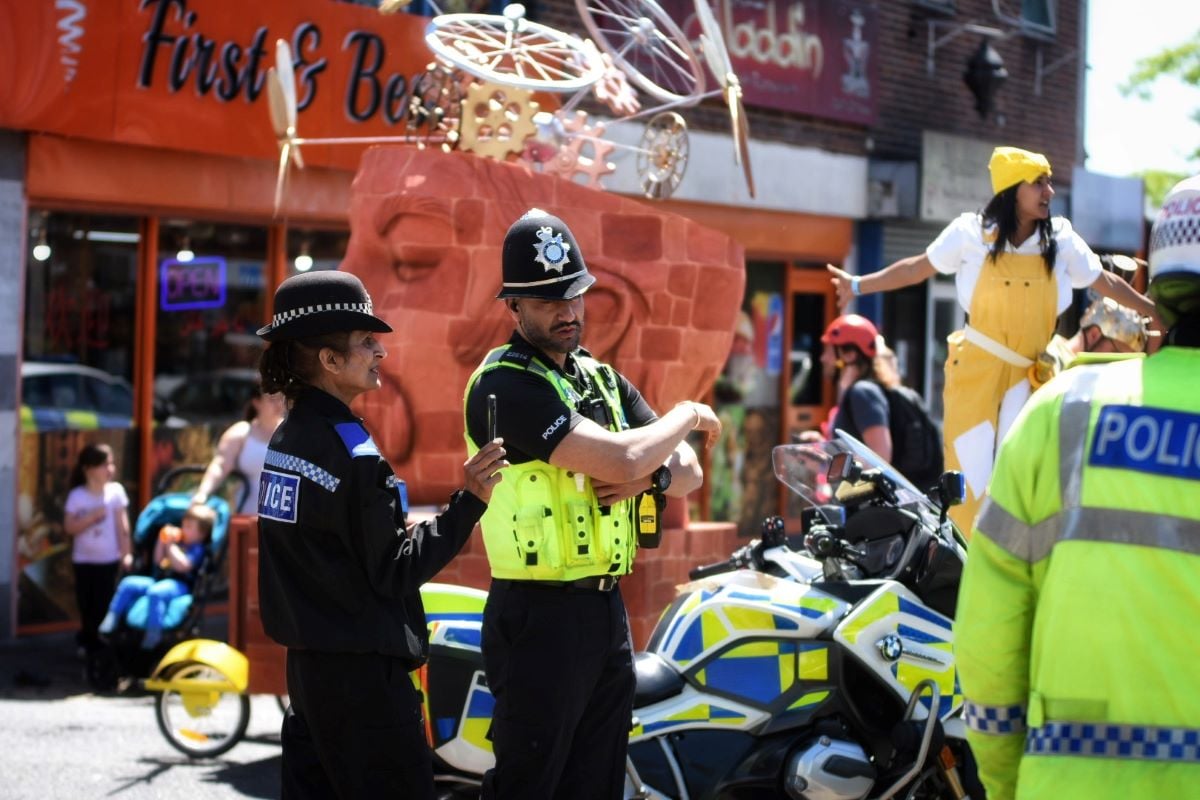
Building trust in policing
Police collaboration in arts and culture projects improves their engagement with communities, building trust and confidence, as Jacqueline Hodgson and Rachel Lewis argue in their new report.
Public trust in policing is at an all-time low, with a real deterioration in public confidence over the past few years, evidenced most recently in the Casey Review of the Metropolitan Police Service. In our research (Policing Culture and Community: West Midlands Police as City of Culture Partners), based on over 100 interviews and focus groups, we investigated the ways in which arts-based interventions might help to address this issue.
We know the arts can have a transformational impact at both a personal and collective level – changing mindsets, shifting perceptions and building trust. So, what might be the impact of police forces engaging with communities through creative endeavours?
Can arts-based programmes offer a democratising space in which both the police and the public can begin to shift their perceptions of one another? Could this help to build public confidence in policing? And what are the challenges of this sort of engagement?
West Midlands Police and the Coventry UK City of Culture
In 2019, West Midlands Police (WMP) entered into an unprecedented partnership with the Coventry City of Culture Trust (the Trust) to explore these possibilities. The partnership involved a team of six police officers/staff embedding in the Trust and working closely with the creative team, giving the police many and varied opportunities for engaging with seldom-heard communities through the arts.
This engagement took place at events attended by officers in order to chat to people in a non-law-enforcement context. It also occurred through the participation of individual officers in creative initiatives – for instance a Chief Inspector who wrote and performed a poem about her life experiences, and a Police and Community Support Officer (PCSO) who played a police role in a play about dementia.
And finally, it took place through initiatives co-devised between the embedded police team and the Trust. For instance: a forest camp, in which young people at risk of school exclusion and/or criminal exploitation worked with officers and creative practitioners through film making, lyric writing and podcasting to explore questions around safety in urban and green spaces.
And a mural project, where people with experience of homelessness attended workshops with police officers and others to explore issues through creative collaging with an artist, then constructing a large mural which captured the themes that emerged.
Connecting, democratising, humanising
In our research, we found arts-based interventions can offer particular opportunities which may not be so readily available through other avenues for engagement, such as sport. For instance, arts and culture projects can help to flatten hierarchies, particularly where principles of ‘co-creation’ are foregrounded.
Taking this approach means placing the impetus on relationship-building, with process foregrounded over output. It is not always straightforward for members of the public to articulate their views directly to the police.
However, in the mural project, for instance, working collaboratively and sharing a collective purpose enabled interlocutors to participate on a more equal footing and meant that participants with experience of homelessness felt a sense of power sharing with those involved.
Further, for many we interviewed, arts and culture can offer a particular opportunity to share perspectives and experiences, and to express personal feelings and emotions. For many of the police officers we spoke to, this was an unusual space to occupy – they told us they were trained to ‘emotionally detach’ in an encounter and were typically seen by the public as ‘robots’.

Within an arts and culture space, however, they felt able to express themselves more fully. As one officer said, in these initiatives “we’re treated like human beings as opposed to just a police uniform”.
Similarly, these projects offered members of the public, particularly those from seldom-heard communities, an opportunity to share something of themselves as well, a chance to give the police an insight into their life experiences.
For one police participant, this had really “opened her eyes” to the young people she encountered. Another senior officer was visibly moved during a photographic and video exhibition depicting young people’s experiences of policing.
For many of those we spoke to, the shared vulnerability offered in arts initiatives helped to build mutual understanding and empathy between those involved, and to counteract the sense of ‘them and us’ they had previously felt.
Longevity and culture change
The potential benefits of engaging through the arts is not without its complexities. It is time and resource intensive, and some officers felt their time was already overly compromised. It also requires attention from the police to broader police practice.
For many people we interviewed, individual instances of police brutality alongside wider practices such as stop and search, racial profiling and strip searching were damaging relationships between the public and police to such a degree that bridge-building through the arts could not overcome their sense of distrust.
We point, therefore, to the importance of institutional culture change – both in embedding community engagement through the arts in all sectors of the police force, and also in committing to engaging with broader issues around police practice and strategy.
We also highlight the importance for the police of building strong networks and partnerships with arts and community organisations, both to draw on their expertise, and to construct initiatives which meet the needs of the communities they work with.
By working collaboratively and respectfully with artists, creative practitioners and community groups, the police can potentially begin to build stronger, more trusting relationships with the public.
Jacqueline Hodgson is Deputy Pro-Vice Chancellor (Research) at the University of Warwick.
Rachel Lewis is Research Fellow in the School of Law, Warwick University.
![]() @warwickuni
@warwickuni
Join the Discussion
You must be logged in to post a comment.